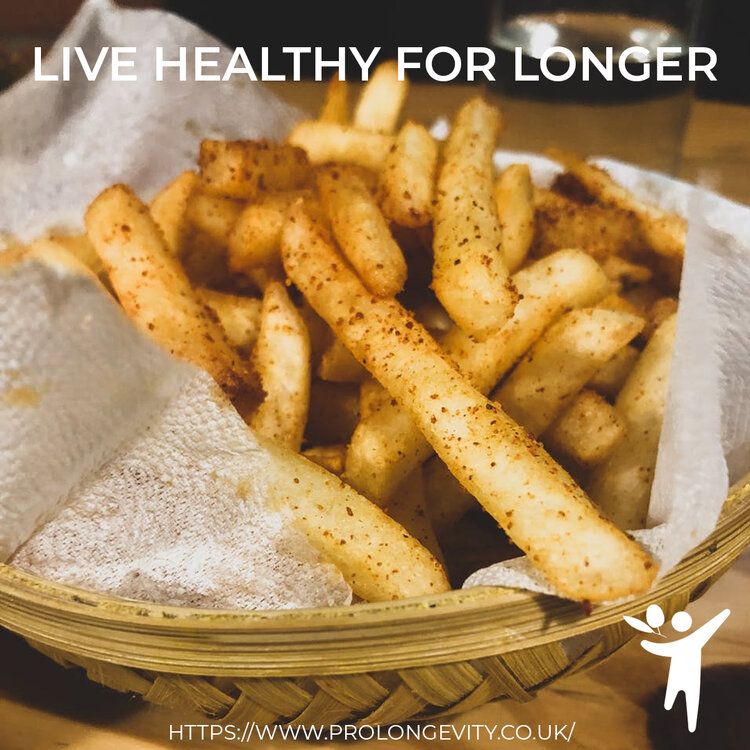How do carbs affect my health?
Carbohydrates are simply chains of sugar (glucose) which is why when we metabolise them they have a direct impact by raising your blood sugar levels. So too much carbohydrates in your diet will to life threatening conditions like type 2 diabetes, heart disease and hypertension and even dementia.
But it would be wrong to label all carbohydrates as inherently unhealthy: put simply, healthy people can handle a moderate amount of unprocessed carbohydrate perfectly well. (We’ve blogged previously about the dangers of processed foods for example here: www.prolongevity.co.uk/blog/ultra-processed
However, the more insulin resistant you are, the less well your body is able to handle carbohydrates.

People with prediabetes and type 2 diabetes, in particular, find that the more carbohydrates they consume, the more problems they experience, such as:
- High blood sugar levels
- Increase in insulin resistance
- Increasing body weight
- Increased appetite
- Mood fluctuations
- Brain fog
Excessive carbohydrate intake
Although it seems difficult to “blame” just one part of the diet for conditions like obesity and type 2 diabetes, there is growing evidence that excessive carbohydrate and sugar intake are playing a massive role in the development of these conditions. (It might surprise you to know that our sugar consumption has increased 20-fold in the last 100 years)
A national survey of the diets of low-income households showed that some people are having truly excessive carbohydrate and sugar intakes. A significant proportion of under 50 year olds are eating between 500 and 600g of carbohydrate and over 300g of sugar each day which is way over the recommended limit (which, itself is still way too high) of 225 and 325 grams of carbs a day. (That’s the equivalent of 45 to 65 spoonfuls of sugar EVERY day!)
Plus, a section of the 19-34 age group showed an appalling reliance on sugar with 68% of their energy intake coming from sugar alone!
Carbohydrate and high blood sugar
In basic terms, high carbohydrate intake and diabetes are a recipe for disaster. !
As we’ve already said, because carbohydrate is converted directly into glucose, the majority of people with diabetes will never achieve healthy sugar levels if they consume a carbohydrate-focused diet.
The more refined carbohydrate in the food, the quicker and more sharply it will affect blood sugar levels.
https://www.prolongevity.co.uk/blog/sugar-and-carbs
So, refined grains, such as white bread, white rice and sugary foods, will cause a sudden and dramatic rise in blood sugar which will force the body to produce huge amounts of insulin is a desperate attempt to bring body levels back under control. This, in turn, will cause hunger, mood swings and a craving for yet more sugar.
Insulin resistance in people with type 2 diabetes https://www.prolongevity.co.uk/prediabetes-form and prediabetes means that the body will struggle to move sugar out of the blood. The more carbohydrate you have, the more the body will struggle and the higher your sugar levels will be.
Carbohydrate and insulin resistance
Prediabetes and type 2 diabetes are conditions of glucose intolerance and therefore carbohydrate intolerance.
In both prediabetes and type 2 diabetes, the body is over-producing insulin and this is typically accompanied by weight gain and constant exhaustion.
This over-production of insulin is the driver of ever-increasing insulin resistance and the development of prediabetes which, left unchecked, progresses to type 2 diabetes. So, to start the process of reversing this progression, you need to turn down the insulin tap. As carbohydrate is by far the greatest stimulant of insulin production, it makes perfect sense to cut down on carbohydrate intake or (in extreme cases) cut it out completely! (AKA the Keto diet)
Carbohydrate and appetite
There have not been many scientific studies looking specifically at the effects of carbohydrate intake on appetite in people with diabetes. But a 2005 study indicates that lowering carbohydrate intake helps reduce appetite, reduces energy intake, and promotes weight loss in people with type 2 diabetes. www.ncbi.nlm.nih.gov/pmc/articles/PMC4204795/
A low-carb diet may help reduce appetite because healthy, natural fat and adequate protein in the diet provide energy in a more sustained way than carbohydrates and don’t spike your insulin.
Reducing insulin levels and switching the body to get its energy from ketones, by burning body fat, will help reduce appetite throughout the day.
How do I stop myself from developing type 2 diabetes?
Simple! Follow the ProLongevity programme. We help you understand what causes blood sugar spikes when you eat certain foods, so we can identify what foods are good for you and what foods to avoid. Put simply this eliminates the root cause of the epidemic of diabetes and other serious life-limiting conditions like obesity, hypertension, heart disease, and the risk of strokes.





